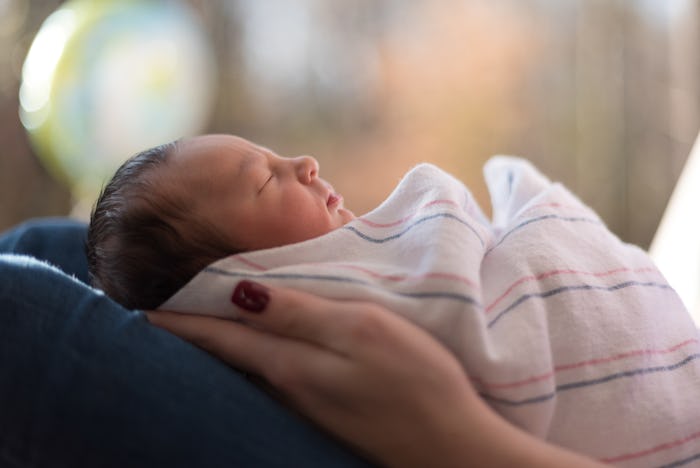News

Think You Remember Your Childhood? Think Again, New Study Says
I often argue with a friend about childhood memories. He swears he can remember events from when he was 2, and I always call BS. After all, scientific evidence has shown that's highly improbable. And now there's new research that suggests your memories from infancy are probably fake.
A new large-scale study published Tuesday in the journal Psychological Science found that first memories from toddlerhood or earlier most likely didn't happen, according to Science Alert. For the study, researchers from the United Kingdom surveyed more than 6,600 people about their first childhood memory, and discovered nearly 2,500 of participants — nearly 40 percent — reported having formed memories before the age of 2, with more than 890 of those people claiming their first memory occurred before they turned 1, Science Alert reported.
But here's the rub: The U.K. scientists figured out that those long-term memories are completely fictional, according to the study's results. The research team came to this conclusion by analyzing the language used by respondents when describing the memory, the content and nature of said memory, and the age of the person participating, according to Science Alert.
Another key finding from the study found that the older the respondent, the likelier they were to report a first memory that was implausibly early, Science Alert reported.
Many of the (proven implausible) early first memories reported included having a diaper changed, being pushed in a stroller, or walking for the first time, according to The Guardian.
Study co-author Martin Conway, director of the Center of Memory and Law at City, University of London, explained to The Guardian:
When we looked through the responses from participants, we found that a lot of these first ‘memories’ were frequently related to infancy, and a typical example would be a memory based around a [stroller]. For this person, this type of memory could have resulted from someone saying something like ‘mother had a large green [stroller]’. The person then imagines what it would have looked like. Over time these fragments then become a memory and often the person will start to add things in such as a string of toys along the top.
It's generally agreed upon that children don't really form memories that are accessible verbally until about 3- or 4-years-old, according to the American Psychological Association. But Conway and his researchers suggest that 5- or 6-years-old is around the time that children are more likely to form long-term memories based on actual events, The Guardian reported.
So why can't people remember events from early childhood? It has to do with brain development.
Yes, children can remember events from before they're 3, but those memories disappear as they age, according to Popular Science. It's a phenomenon known as childhood amnesia, which research has shown may be caused by your brain forming a lot of new cells as you develop.
In 2014 study published in Memory, Canadian researchers found that memories from early childhood begin to fade starting at 6, with the onset of childhood amnesia starting at age 7. Lead study author Patricia Bauer told Popular Science back in 2014:
We think that it has to do with basic biological processes, as neural structures undergo a lot of postnatal development. Early in development those structures are working, but not very efficiently — children are forming memories, but through natural processes those are fading and becoming inaccessible. By the time you reach adulthood, those memories are working very effectively.
Of course, that doesn't mean your memory of that time your childhood best friend Isabella took that wicked spill on her older sister's skateboard didn't happen. Instead, if you remember being a 10-month-old baby playing with a mountain of toys, or getting your diaper changed, you're probably fooling yourself.